Trans fat is commonly found in processed foods and is known have detrimental effects on human health. Trans fat is a type of unsaturated fat found in small amounts in meat and milk.
Trans Fat in your Diet
1.9 percent of men’s daily calories and 1.7 percent of women’s daily calories come from trans fat today. The American Heart Association recommends limiting trans fats to no more than 1 percent of total calories consumed.
The use of artificial trans fats (processed from vegetable oils) in foods is banned or limited in many countries due to an association with increased risk of coronary artery disease. And this rule now applies in the United States!
The U.S. Food and Drug Administration is issuing a direct final rule to complete administrative actions that reflect the agency’s June 2015 final determination that the use of partially hydrogenated oils (PHOs) in foods is no longer Generally Recognized as Safe (GRAS). The FDA established January 1, 2021, as the final compliance date to allow manufacturers time to reformulate foods and ensure an orderly transition in the marketplace.
FDA new details here: https://www.qualityassurancemag.com/news/fda-completes-final-administrative-actions-on-partially-hydrogenated-oils-in-foods/
But, not all trans fat can be removed. This is only to address artificial sources of trans fat. Naturally occurring sources found in meat, dairy products, and some oils will remain present and on the market.
What foods contain trans fat?
The greatest sources of trans fats are typically found in partially hydrogenated oils. Hydrogenated oils are commonly used in processed and fried foods. Some of the main sources of trans fats include:
Commercial Baked Goods:
Trans fats are often used in baked goods like cookies, cakes, pastries, and doughnuts to improve texture and shelf life.
Dietitian Swap: Check your label for the grams of trans fat. Swap for a trans fat free option. Avoid “forever foods” that are in plastic casing with a long shelf life like Twinkies, Oreos and fried donuts.

Fried Foods
Many fast-food chains and restaurants use partially hydrogenated oils for frying foods like French fries, chicken nuggets, and onion rings.
Swap: Order grilled instead of fried!
Snack Foods:
Trans fats can be found in various snack items such as potato chips, microwave popcorn, and certain types of crackers.
Swap: baked chips and air popped popcorn are great trans-fat free options.
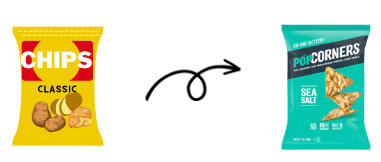
Margarine:
Some margarine and vegetable shortenings may contain trans fats, especially those with a solid consistency at room temperature.
Swap: Use Melt, Avocado Oil, or Ghee.
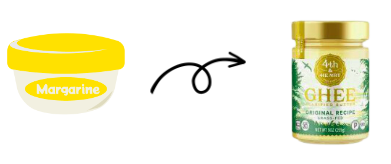
Processed Foods:
Many processed foods like frozen pizzas, frozen pies, and pre-packaged desserts contain trans fats to enhance flavor and extend shelf life.
Swap: double up on portions when you cook to enhance the options for fresh meals and leftovers instead of frozen dinners.
Non-Dairy Creamer:
Some non-dairy creamers and coffee whiteners contain trans fats to achieve a creamy texture. “Its just in my coffee!” ?? A little each day adds up…check your creamer.
Swap: Instead of CoffeeMate and international delight use, nutpods for your creamer.
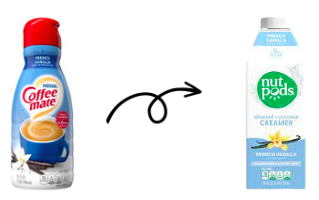
Fried Chicken:
Some restaurant or fast-food fried chicken may be prepared using oils containing trans fats.
Swap: Order grilled chicken or BBQ options.

Refrigerated Dough:
Pre-made refrigerated dough, such as biscuit or crescent roll dough, may contain trans fats to enhance texture.
Swap: make your own flaky biscuits using this simple recipe. Double it and freeze to have leftovers for another weekend brunch!

Peanut butter:
The majority of peanut butter that you see in your grocery store contains hydrogenated oils, such as soybean and rapeseed oil.
Swap: Enjoy a nut butter made with only nuts, like Georgia Grinders, or simply make your own at home with your high-powered blender.
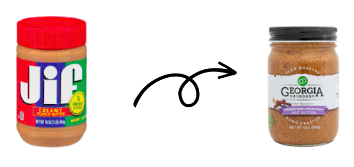
Microwave popcorn:
Conventional microwave popcorn is packaged with vegetable oils to give it that buttery, salty taste we all know and can gravitate towards.
Swap: Get an air popper for your popcorn, or opt for a pre-packaged option that doesn’t contain hydrogenated oils, like LesserEvil popcorn made with coconut oil.
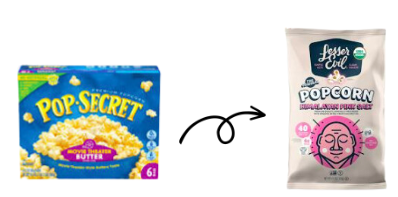
It’s important to read food labels and ingredient lists carefully to identify products containing trans fats. Opting for whole, unprocessed foods and cooking at home is a great way to limit your intake. Using healthier cooking oils, like avocado and olive oil, can help reduce trans fat intake and promote better overall health.
Is trans fat bad?
6 reasons to Avoid Trans Fat
-
Raise “Bad” Cholesterol (LDL) Levels:
- Trans fats raise levels of low-density lipoprotein (LDL) cholesterol, often referred to as “bad” cholesterol. High levels of LDL cholesterol in the bloodstream can lead to the accumulation of plaque in arteries. This increases the risk of atherosclerosis (narrowing and hardening of the arteries) and cardiovascular diseases like heart attacks and strokes.
- Secondly, for every 2 percent of calories from trans fat consumed daily, the risk of heart disease rises by 23 percent, according to research published by Harvard Health.
Check out my blog post, all about cholesterol (and ways to lower it!) here.
-
Lower “Good” Cholesterol (HDL) Levels:
- Trans fats also decrease levels of high-density lipoprotein (HDL) cholesterol, known as “good” cholesterol. HDL cholesterol helps remove excess LDL cholesterol from the arteries, promoting cardiovascular health. Lower levels of HDL cholesterol can further contribute to heart disease risk.
-
Increase Inflammation:
- Trans fats can trigger inflammation in the body, which is linked to a variety of health issues, including heart disease, diabetes, and obesity. Chronic inflammation can damage blood vessels and contribute to the development of cardiovascular problems.
-
Impair Blood Vessel Function:
- Trans fats can impair the function of blood vessels, affecting their ability to expand and contract properly. This can lead to reduced blood flow and increased strain on the heart.
-
Risk of Heart Disease:
- Consuming trans fats has been strongly associated with an increased risk of heart disease, including heart attacks and coronary artery disease. The combination of elevated LDL cholesterol, reduced HDL cholesterol, inflammation, and impaired blood vessel function creates a dangerous environment for cardiovascular health.
- In addition to cardiovascular effects, trans fats have been linked to other health issues such as insulin resistance, type 2 diabetes, and obesity.
What fat is healthier than trans fat? Eat more unsaturated fat!
Due to these harmful effects, many health organizations and regulatory agencies recommend minimizing or eliminating trans fats from the diet. In response to growing evidence of their harmful impact, many countries have implemented regulations to limit or ban the use of trans fats in food products. Choose foods that are free of trans fats and opt for healthier fats, like unsaturated fats.
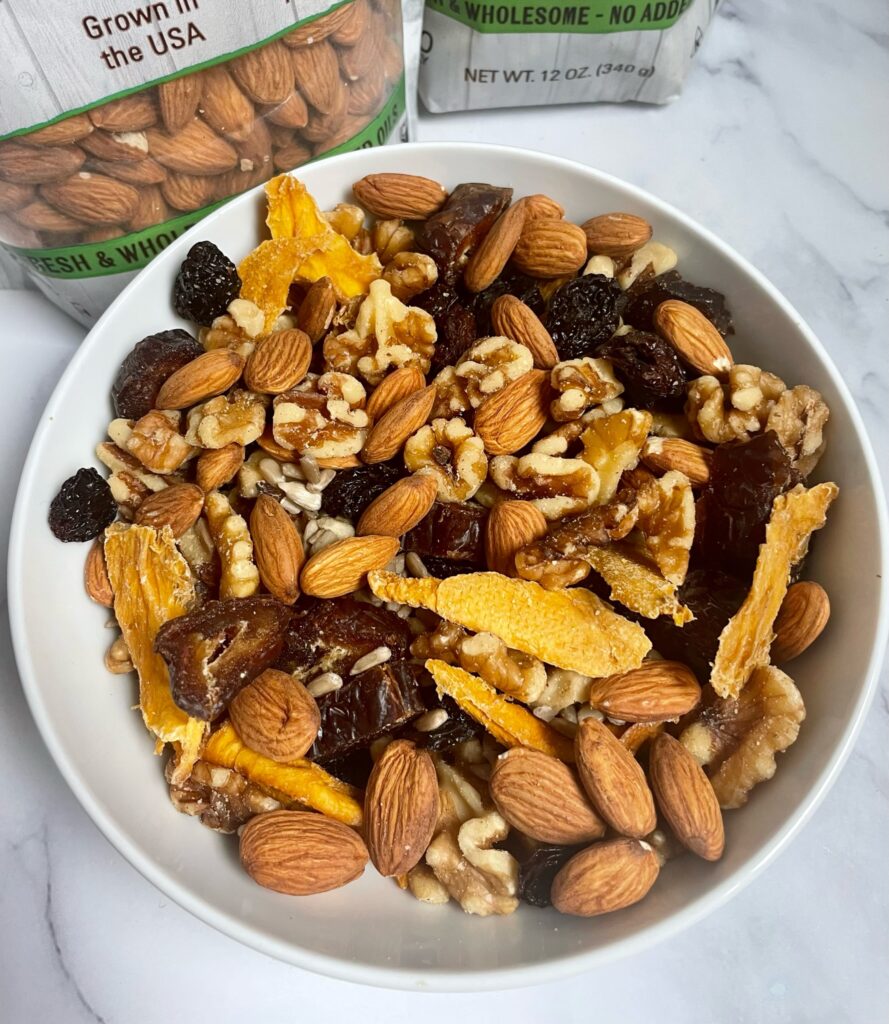
Unsaturated fats are found in foods like:
- Olives and olive oil
- Nuts
- Avocados
These all help support better cardiovascular health, as well as overall health. By understanding the risks of trans fats and adopting healthier eating habits, people can protect their heart health and promote overall wellness.
The Research on Trans Fat
Cancer Risk
Trans fats could increase cancer risk related to endothelial dysfunction and inflammation. This can result in protein, RNA, and DNA damage. Further, a higher dietary intake of trans fatty acids was associated with higher odds of developing colorectal cancer.
Mortality
Saturated fat intake was associated with a higher risk of all-cause mortality. Intake of polyunsaturated fat and plant-derived monounsaturated fat were both associated with a lower risk of all-cause mortality, as well as mortality from cardiovascular disease.
Male Fertility
A diet ideal for male fertility includes vegetables and fruits, nuts, whole grains, fish and seafood, poultry, and low-fat dairy products. Conversely, low consumption of antioxidants and high consumption of calories, processed and red meats, and saturated and trans fats can contribute to male infertility.


